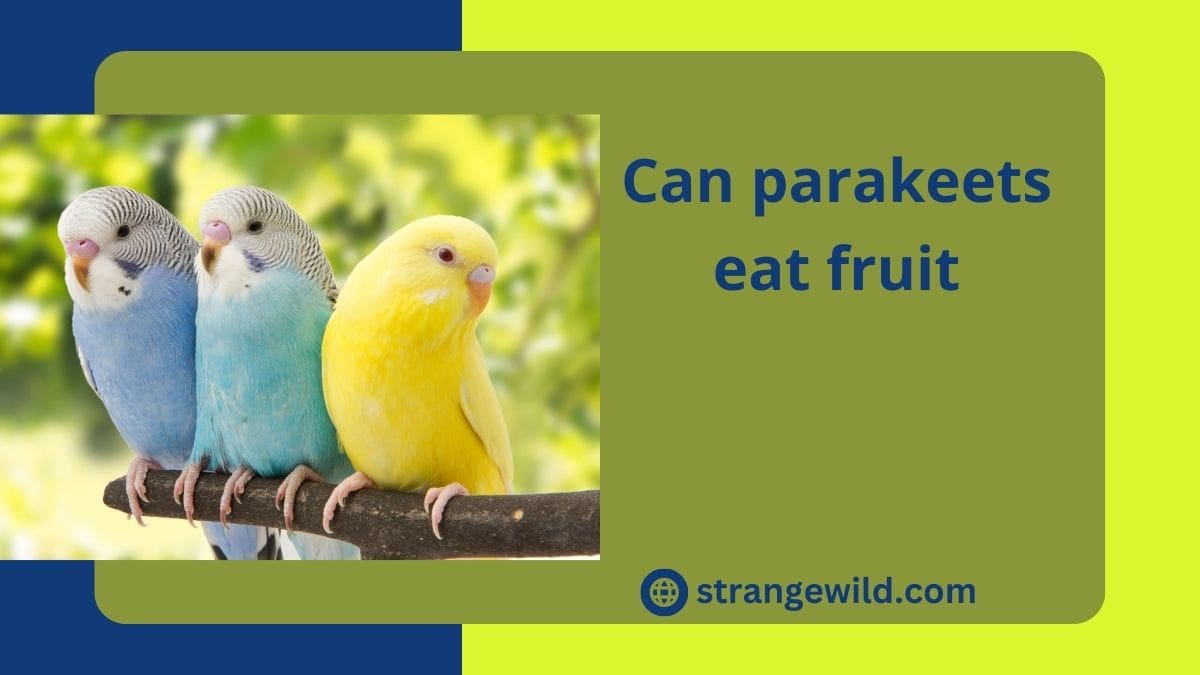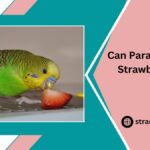Can parakeets eat fruit? Variety of Fruits
Can parakeets eat fruit? Diet is one of the care factors you’ll need to concentrate on if you’ve just gotten your first parakeet or are investigating getting one. A suitable diet has a significant impact on the health and happiness of a domesticated parrot. Fortunately, more and more parakeet owners are realizing that their pets require more than just seed.
So what else qualifies as a solid choice? Can parakeets eat fruit? Discover whether you should feed fruits to your parakeet and discover a list of fruits that are safe to feed by reading about them.
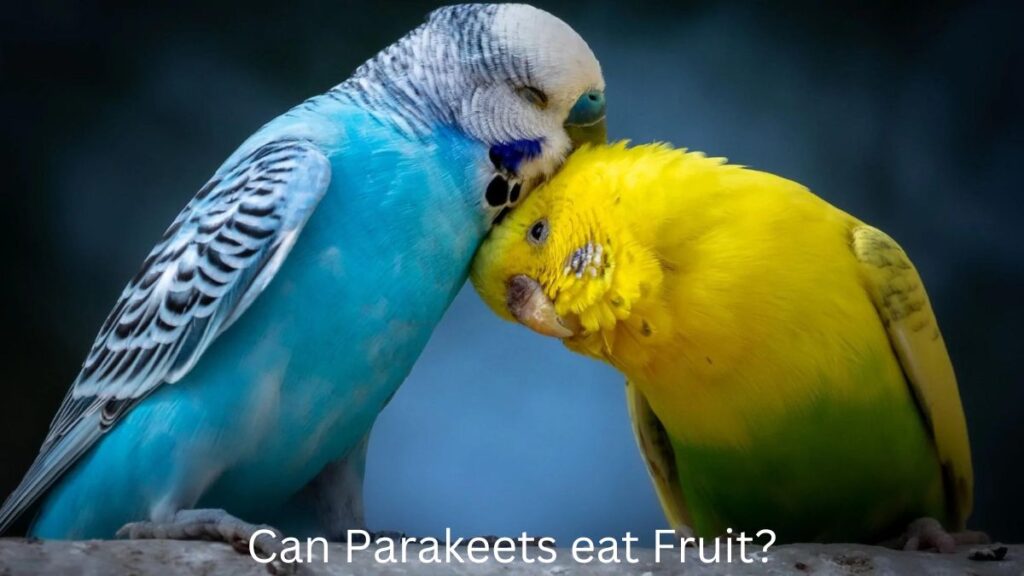
Can Parakeets Eat Fruit?
Yes, they can. Although not all parakeet species consume a lot of fruit in the wild, they can be provided with the majority of fruit varieties in captivity. The fruit has a high sugar level, so you should concentrate on veggies instead, but you can still serve some slices and berries sometimes. Fruit, after all, is loaded with essential vitamins and nutrients! Fruit can be strung in a bird’s cage on metal skewers that are safe food carriers for birds. The fruits that parakeet owners frequently inquire about are discussed here, along with some of the fruits that should be avoided (only a few, luckily). Parakeets eat list
Advice: It’s possible that your parakeet just eats seeds and dislikes fresh fruit. Please don’t let this discourage you! Just keep presenting new choices. Most birds will eventually give in and go for a nibble.
Yes, Parakeets can eat Fruit
Fruit is a nutritious treat for parakeets and can give them the necessary vitamins and minerals. Though excessive fruit consumption might make parakeets put on weight, it should be avoided. Don’t give them large amounts of fruit; instead, give them small amounts of fruit sliced into manageable portions.
What sort of fruit Can parakeets eat?
Parakeets may consume a variety of fruits as part of a balanced diet. These include grapes, apples, pears, oranges, and bananas. While some of these fruits contain more sugar than others, parakeets can safely eat all of these fruits in moderation. Two of the favorite fruits for parakeets are apples and pears. These two fruits are loaded with vitamins and nutrients that are vital for the well-being of parakeets. Pectin, which is also found in apples, can support a parakeet’s digestive system health. Fiber from pears is a healthy source and can aid with constipation.
Another excellent fruit for parakeets is oranges. Vitamin C, which is essential for a parakeet’s immune system, is found in abundance in oranges. They also have a tiny quantity of calcium, which is essential for healthy bone growth. Another great food for parakeets is bananas. Potassium, which is essential for a parakeet’s heart health, may be found in bananas.
In addition, they are a wonderful source of vitamins and minerals like magnesium and vitamin C. Another excellent food for parakeets is grapes. Antioxidants, which can help shield a parakeet’s cells from harm, are abundant in grapes. Additionally, they are a wonderful source of vitamins and minerals like potassium and vitamin C.
Apples, Bananas, Oranges, and Grapes are all Parakeets Can eat
When giving your parakeet fruit, there are a few considerations. First, check to see if the fruit is still fresh and unspoiled. In order to get rid of any potential pesticides or chemicals, wash the fruit well. Fruit should be offered to your parakeet in little pieces so that they can consume it effortlessly.
To make the fruit easier for them to eat, you can also mash it up. Make careful to first remove the seeds from any grapes you are presenting. Fruit is a generally wholesome and nourishing treat for your parrot. Just make sure to do so sparingly and to always have fresh, washed fruit available.
Can Parakeets eat Bananas?
Yes! One of the more nutrient-dense fruits, bananas are packed with beneficial components for your parakeet.
As was previously noted, not all parakeets that were raised on pellets can adapt well to fruit. If you’re trying to transition your bird to a more varied diet, a banana is a fantastic first choice because you can simply mash it and perhaps even sprinkle in some seeds. In this manner, the bird must pass through the banana in order to reach the seeds, hopefully tasting it and coming to like it in the process.
Can Parakeets Eat Grapes?
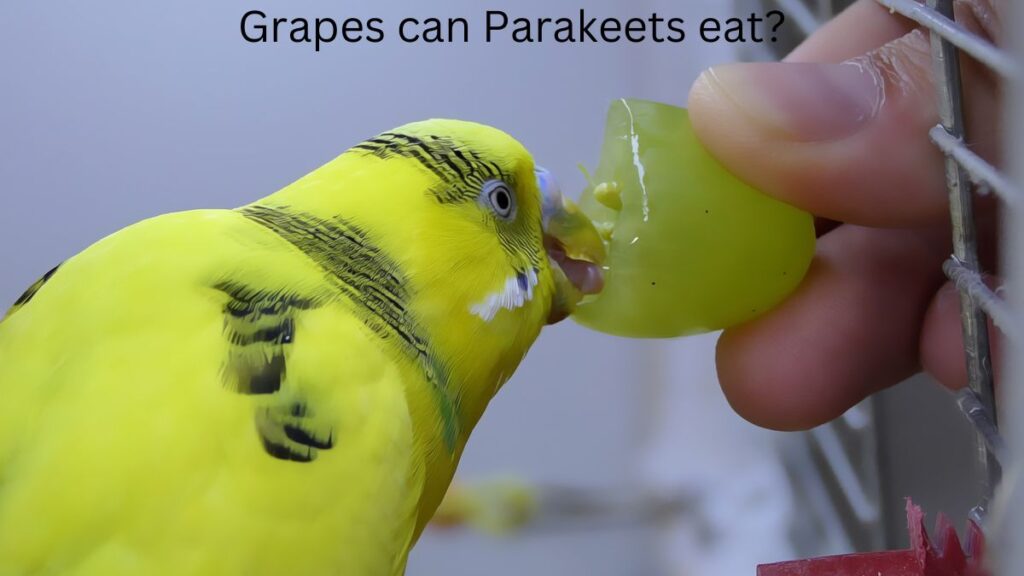
Yup! If you purchase some for yourself, be sure to remember to get some for your birds as well. Grapes of any kind are a great addition to your parakeet’s diet. If your parakeet is a smaller species, such as a budgie, you should break them up since otherwise, it can find it difficult to reach the tasty flesh.
Additionally, keep in mind that just ONE grape is actually sufficient, as too much of this fruit might make your parrots obese.
Dried grapes are used to make raisins. As long as the raisins are free of sulfites, added sugar, and other artificial substances, parakeets can eat them. Again, though, one or two raisins will be more than enough because natural sugars in dried fruits are relatively high.
Can Parakeets Eat Watermelon?
Yes! Feel free to feed your parakeet some watermelon if you happen to be chewing on a slice yourself. This fruit’s high water content makes it a fantastic method to keep your parakeet hydrated during the hot summer months.
If you want to give your parakeet watermelon, leave out the rind just to be safe. Since the rind should not be consumed by humans, it may include chemicals on the outside that are poisonous to even little animals like parakeets.
Can Parakeets eat Strawberries?
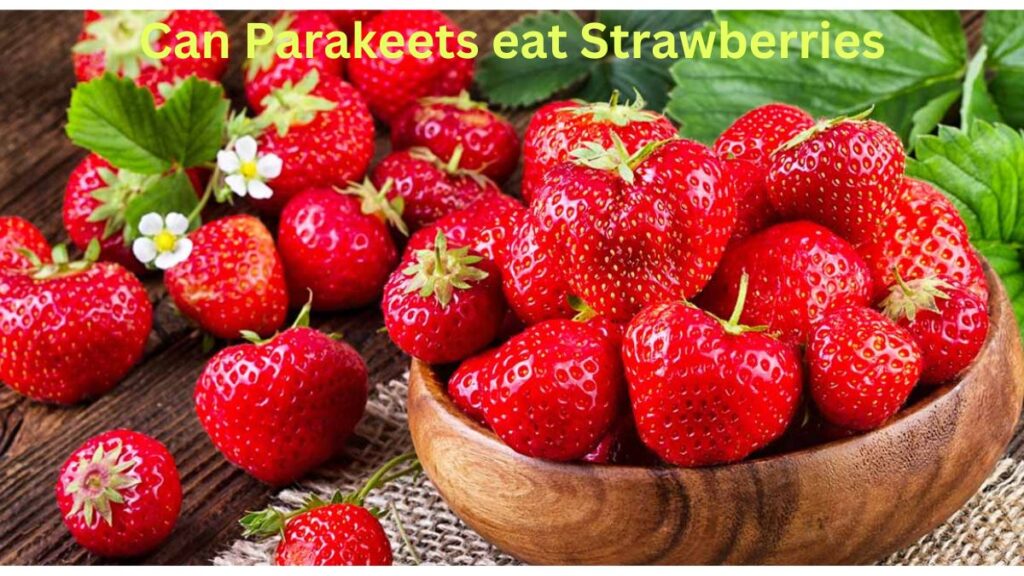
Strawberries, please! They are quite sugary, like many fruits, and shouldn’t be had every day. However, if you do have any sitting around, your parakeet would likely love some. Since parakeets frequently enjoy tender green treats, as was previously noted, there is no need to remove the crown.
Please note that after eating a strawberry, your parakeet can appear to have recently massacred something. The juices may leave some stains.
Can Parakeets Eat Blueberries?
Yes also to blueberries!
You may have heard blueberries referred to as a “superfood,” and it is true that they are a powerhouse of antioxidants and vitamin C. Great for our birds as well as for us. Any berry that we enjoy eating as humans will work just great for parakeets as well.
Consider blackcurrants, raspberries, and blackberries. Purchasing a frozen mix is practical because it keeps well and produces excellent smoothie ingredients.
Dried cranberries may also be fed as long as they are 100 percent fruit. Just one or two because, once more, sugar content!
Can Parakeets Eat Oranges?
Oranges that have been peeled and seeded work. Citrus fruits are, however, generally acidic, even the sweet ones like oranges and clementines. Offer them sparingly so your bird doesn’t experience stomach pain (or obesity due to the sugar content). Citrus in excess appears to cause diarrhea because it irritates the digestive tract.
When I juice fresh oranges, I usually give my parrots some of the pulp that is left behind. reduce waste!
Can Parakeets Eat Pineapple?
Yup! The nutrients in pineapple, including vitamin C, are abundant. If your parakeet loves fruit, it will likely also appreciate trying some pineapple.
Do keep in mind that pineapples have an aggressive chemical in them (have felt your tongue burn after eating too much of it?). Despite the fact that I was unable to locate any precise information on this subject, I believe that feeding it in moderation is the best course of action. But given the sugar content, you should already be doing that.
Can Parakeets Eat Cherries?
Yes, your parakeet will love a few fresh cherries as a snack. But because the cherry pit contains a highly dangerous chemical on the interior, it should be served without the pit, much like with apricots, peaches, plums, and other stone fruits.
Although the majority of parakeets won’t be able to eat the seeds of any of these fruits, it’s always best to be safe than sorry!
Can Parakeets Eat Apples?
Yes, and a lot of parakeets actually appear to prefer apples’ crunchy feel in particular. If your parakeet was reared on seeds and hasn’t shown any interest in eating fruit, a little piece of apple is definitely a decent place to start.
Apple pits can be poisonous to budgies, just like the previously stated stone fruits. Giving apple cores to your bird is a good method to avoid food waste, but make sure to remove the seeds first.
Can Parakeets eat Mangoes?
Yes! I enjoy feeding mango pits to my parrots while keeping some for myself.
Although the meat of the pit is difficult to obtain for personal use, it is not harmful.
Your bird will probably have a lot of fun removing every last edible piece from the seed, which will keep it occupied for a long. You can of course also give normal mango flesh, though.
Can Parakeets eat Pomegranates?
As we’ve discussed, some fruit seeds can be toxic to parakeets. Your parakeet can eat pomegranate seeds because they are not one of those. In fact, a lot of people will go bonkers for this especially juicy fruit.
Can Parakeets eat Apricots?
As long as the pit is removed, apricots can be a tasty treat for your parakeet, much like apples. Although the apricots themselves can be a nutritious addition to a diet that is well-balanced, the pit is harmful to parakeets.
Can Parakeets Eat Blackberries?
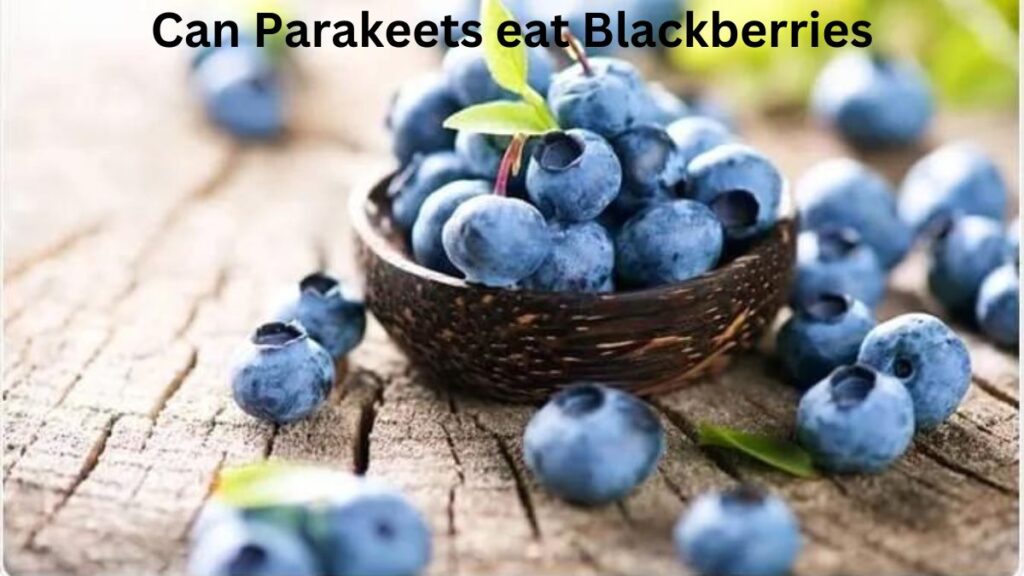
A parakeet may eat blackberries of any size. They do contain seeds, but they are not poisonous to birds and easily digested by them.
Can Parakeets Eat Coconut?
Coconuts are a delicious and healthful treat for parakeets. They are an excellent source of vitamins and minerals for your bird and are high in magnesium, iron, and other nutrients.
Can Parakeets eat Grapefruit?
Grapefruits contain a variety of phytonutrients and are a rich source of vitamin C. Before serving, the seeds must be taken out.
Can Parakeets Eat Oranges Mandarin?
Mandarin oranges are another fantastic vitamin C source. Once more, avoid eating these seeds since they contain cyanide-producing chemicals. They make a fantastic snake if you can cut them up into small enough bits for your parakeet.
Peaches
Another excellent source of vitamin C and vitamin A is peaches. Another fruit that must have its poisonous pit removed before eating is this one. Make sure to slice the peaches into more manageable, smaller pieces.
Pears
For parakeets, pears are a fantastic source of fiber. The skin should be removed before serving because it is difficult for them to digest. Remove all of the seeds as well; they are equally harmful to humans as the seeds of other fruits and should be avoided.
Plums
Plums are a fruit that parakeets can eat that is particularly nourishing because they are high in fiber and vitamin C. Again, the pits are poisonous and will convert to cyanide in the body.
Parakeets eat Other fruit
The most frequently requested fruits for parakeet feeding are those on the list above. Of course, it doesn’t stop with just 19 choices. The majority of fruits you can buy can be eaten by your parakeet, albeit you should only give them to them occasionally.
So remember your feathered friend when you’re enjoying a slice of fruit! Kiwi, papaya, nectarine, carambola, lychee, cherimoya, figs, dragon fruit, and other fruits not listed above are also fine to eat. Although there is some disagreement over persimmons, it seems that they are fine when fully ripe.
Do Parakeets eat Dried Fruit?
Fruit that has been dried can be consumed by parakeets, but it really depends on how it has been prepared. Sulfur is a preservative that some dried fruits have on them to keep bacteria and mildew from forming on them. Parakeets cannot digest these preservatives, although human digestive systems can.
Using a dehydrator at home to dry your fruit is an option, or you may buy dried fruits manufactured especially for birds online or in pet stores. Going with this approach is preferable to having to worry about sulfur in dried fruits intended for human consumption. Check the label if you purchase dried fruit from your neighborhood grocery store.
How many fruits Can Parakeets eat?
Although parakeets can eat a variety of fruits, they shouldn’t consume too much of them. As a general guideline, give them 1/4 to 1/2 cups of fruit each day. They might receive this as a mash or in little chunks. Fruits like apples, oranges, grapes, bananas, and strawberries are among the greatest options for parakeets.
As part of a healthy diet, parakeets can have a modest amount of fruit each day
Fruit offers vital vitamins, minerals, and antioxidants that parakeets need. To make sure your parakeet is getting a well-rounded diet, it is crucial to provide them with a variety of fruits. Fruits like apples, pears, peaches, mangos, and melons are all terrific choices. A little goes a long way when giving fruit to your parakeet, so keep that in mind.
Fruit overconsumption can result in weight gain and other health issues. Every day, give your parakeet a small piece of fruit. Take away any unfinished fruit the following day before serving fresh fruit.
What fruits should parakeets avoid eating?
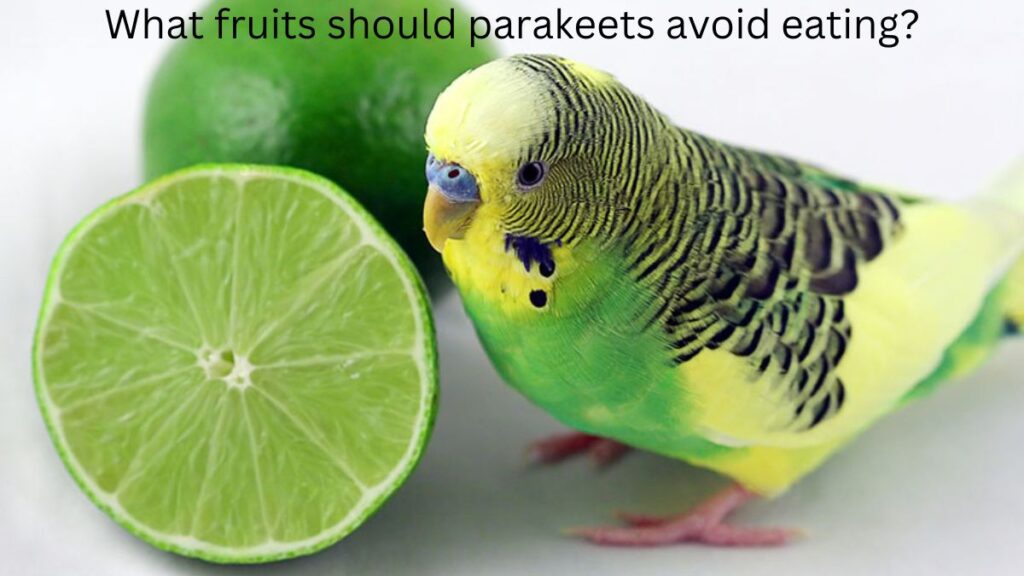
A few items, such as avocado, chocolate, and alcohol, are off-limits to parakeets. While providing your parakeet with a varied diet that includes fresh fruits and vegetables has numerous health benefits, it’s crucial to be aware of which foods are hazardous to them. Parakeets, for instance, are susceptible to the person toxin found in avocados. Birds
Theobromine, another ingredient in chocolate, is harmful to birds. Of course, alcohol is hazardous to birds as well. While there are many tasty and healthful fruits that parakeets can eat, it is important to remember not to give them any of the fruits listed above.
Avocados shouldn’t be consumed by parakeets as they contain a toxin that can kill birds
Although parakeets are officially allowed to consume fruit, some fruits are healthier for them than others. For instance, avocados have a toxin that may be detrimental to birds. As a result, while your parakeet might be able to consume a tiny bit of avocado without experiencing any negative effects, it’s best to keep this fruit away from them entirely.
You should not worry about depriving parakeets of a delightful treat because they can consume a variety of other fruits. Apples, pears, oranges, and bananas are some of the greatest fruits for parakeets. Just make sure to take the seeds and core out of the fruit before feeding it to your parakeet because they can be harmful to eat.
Frequently Asked Questions
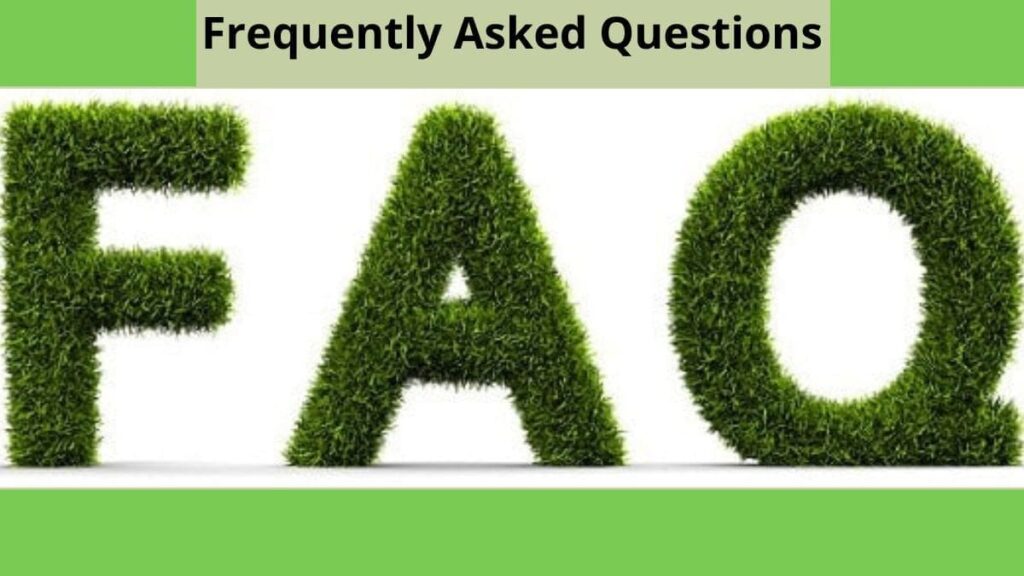
What else, except fruit, can parakeets eat?
Fruit is a healthy food option for your parakeet, as this article has shown. Fresh vegetables, such as leafy greens, sprouted seeds, and seeds or pellets should also be supplied to keep the bird healthy.
What you should aim for here is variety. Additionally, you may add in a variety of different ingredients as a supplement, such as cooked rice or pasta, boiled eggs, cooked weeds, and grasses from your garden (clovers are a favorite here), and even herbal tea blends!
Are there some healthful foods that, under particular circumstances, should not be fed to birds?
Because sugar feeds the yeast, it should not be consumed by pet birds with candidiasis while they are being treated. Fruit is prohibited since fructose and sugar are the same things. Depending on their therapy, birds with avian gastric yeast may or may not be able to consume fruit.
To ensure that you don’t unintentionally feed your birds the wrong thing, it’s crucial to review the proper bird diet with your veterinarian.
The frequency of parakeet feedings?
Each month, parakeets typically consume one pound of birdseed. This equates to about 3 tablespoons daily. Nevertheless, this may vary based on their age and general state of health. You might wish to speak with a doctor if you suspect your parakeet is overeating or undereating.
Conclusion
Only 20% to 25% of a parakeet’s diet will be made up of fruits and vegetables together. Now that you are well-versed in the fruits parakeets can eat as well as the safety measures to take. You can incorporate them into their diet’s fresh food part.
Please feel free to leave a comment below if you have any additional questions about fruits for parakeets or the general parakeet diet, or if you would want to share your own experiences with feeding a diverse diet.

